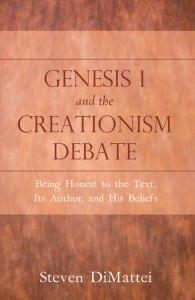Stories were as much a part of the ancient world as the television is for us today. People told and heard stories on a daily basis. It was part of their lifeblood. Stories defined a people’s identity and origins; they explained the origins of current political and religious institutions; and they preserved traditional beliefs, worldviews, and customs. Most stories enjoyed a long oral tradition before they were finally written down. In many cases alternative versions of stories existed. A people living at one place in time might tell the story that they inherited from their forefathers differently in order to suit the needs of their community, or to better represent the changing views and beliefs of their community. One can easily imagine changing narrative details in an old story in order to modernize its message. If you’ve ever seen a modern production of a Shakespeare play, or Dickens’ A Christmas … Read more
Contradictions in the Bible
Identified verse-by-verse & explained using the most up-to-date scholarly information about the Bible, its texts, and the men who wrote them.
-
My Books
 "DiMattei’s book is a refreshing call both for biblical literacy and for intellectual honesty in dealing with the Bible" —John J Collins (Yale).
"DiMattei’s book is a refreshing call both for biblical literacy and for intellectual honesty in dealing with the Bible" —John J Collins (Yale).
“Genesis 1 and the Creationism Debate is an accessible and useful book for those who seek to understand why creationism is flawed on biblical grounds”—Hector Avalos (Iowa U).
-
Recent Posts
-
In Defense of Jesus:
A Challenge To Those Claiming To “Follow Jesus” (part I) -
Genesis 1 and the Creationism Debate:
Being Honest to the Text, Its Author, and His Beliefs - Did Moses Lie to Us? A Textual Journey (Part III)
- Did Moses Lie to Us? A Textual Journey (Part II)
- Did Moses Lie to Us? A Textual Journey (Part 1)
- Genesis 1:1-2:3 on Its Own Terms and in Its Own Historical and Literary Context
- Genesis 1:1-2 — not a Creation ex nihilo
- Genesis 1:3-5 — Day is Light
- Genesis 1:6-8 — Life Inside a Water Bubble
- Genesis 1:9-10 — The Creation of the Material Substance Earth, Not the Planet!
- Genesis 1:14-19 — The Creation of the Luminaries to Keep Yahweh’s Festivals
- Genesis 1:24-28 — Mankind, More than just an Animal
- Genesis 2:2-3 — Sacred Time Embedded into the Creation
- Genesis 2:4b-25 on Its Own Terms and in Its Own Historical and Literary Context
- Genesis 2:4b — Observing Thematic and Stylistic Differences
- Genesis 2:5 — Man and Rain: Prerequisites to the Creation of Plants
- Genesis 2:6-7 — Yahweh Molds an Earthling!
- Genesis 2:18-20 — Man and the Animals from the Ground, Woman from Man
- Matthew’s Jesus and the Criterion of Righteousness
- Introduction to Forthcoming Contradictions in the Bible
- Style, Vocabulary, and Message
- The Book of Deuteronomy: A Brief Introduction
- Using Moses to Rewrite History
- The Bible’s Contradictory Stories and “Histories”
- How do we know that the biblical writers were not writing history?
-
In Defense of Jesus:
Recent Comments
No comments to display
Posts by Category
Archives
Follow Me!




